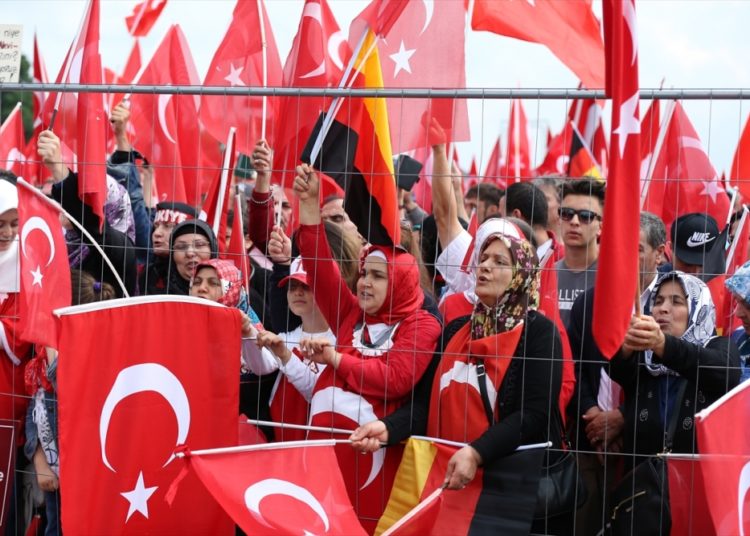Levent Kenez/Stockholm
Abdullah Eren, the head of Turkey’s diaspora agency, the Presidency for Turks Abroad and Related Communities (YTB), said during a meeting of the parliamentary Foreign Relations Committee on April 7 that they had taken measures to prevent the assets of citizens living abroad from being detected by the countries in which they live.
European countries demand that information on assets, income and bank deposits belonging to Turkish citizens living in Europe be accessible for them to prevent tax evasion and unfairly benefiting from social assistance.

A significant number of Turkish citizens living in Europe are believed to receive social assistance, even though they have several houses in Turkey, a substantial amount of money in Turkish banks or income from Turkey.
In his speech at the committee, Eren said they have developed some mechanisms to prevent Turkish citizens’ assets in Turkey from being investigated by the municipalities where they’re registered in Europe. For example, he said that through a two-step verification process, foreign municipalities cannot now access information on property deeds, which was previously available with a Turkish citizenship number. In many European countries social assistance is provided by the municipalities. To receive the assistance, your income information and assets must be declared completely and accurately.
There is another measure that Eren did not mention but which Turkey has implemented. Turkey passed the Personal Data Protection Law in 2016 after receiving complaints from citizens abroad. According to this law, Turkish citizens can hide their assets if they so desire. When they apply to the Social Security Institution (SGK), both their deeds and their SGK pensions received can be hidden within 28 days, with the result that this information is not given to any third parties including foreign governments and municipalities.
Minutes of Eren’s speech in parliament:
However, there is a different situation regarding citizens’ funds in the bank. Turkey became a party to the “Multilateral Competent Authority Agreement on Automatic Exchange of Financial Account Information” in 2019. It started sharing information with other countries in 2021. The objectives of the agreement include transparency as well as preventing money laundering and terrorist financing.
With the agreement, the information of Turkish citizens residing in other countries must be transferred to the Ministry of Finance through banks and then to the relevant country’s authority. If the addressee country receiving the information determines that the person residing within its borders has not declared his/her income in Turkey, it may impose a penalty for tax evasion.
For a long time, Turkey refrained from implementing the agreement, stating that its infrastructure was not suitable for information sharing. However, in 2021, Turkey finally started sharing 2019 financial records with Norway, Latvia, England, Denmark, Finland, Sweden, Italy, Canada and Australia, adding Germany, Austria, Belgium and the Netherlands, all heavily populated by Turks.
With Turkey starting to share information, the pro-government media published stories that bank information is shared with other countries according to the address of the account holder and that they can prevent such sharing if the address on the bank accounts is changed to Turkey, in an effort to calm expatriates’ anger at the government for enforcing the agreement. It seems that while Turkey, unable to withstand the pressure of being blacklisted abroad, signed an international agreement to prevent financial abuse, it is also exploring ways to render the agreement dysfunctional at home.
Utku Çakırözer, an MP and member of the parliamentary Foreign Relations Committee, told Eren that Turkey had started to implement the agreement without adequately informing some 7 million Turkish citizens living abroad and said the government did not provide them with legal assistance. Eren said they have not received any complaints so far.
Eren also gave a presentation about YTB activities, especially in Europe and the Balkans, at the committee meeting. Nordic Monitor previously reported how the National Intelligence Organization (MIT) recruited spies using nongovernmental organizations including the YTB and the Turkish Cooperation and Coordination Agency (TİKA).
Text of the Multilateral Competent Authority Agreement on Automatic Exchange of Financial Account Information:












